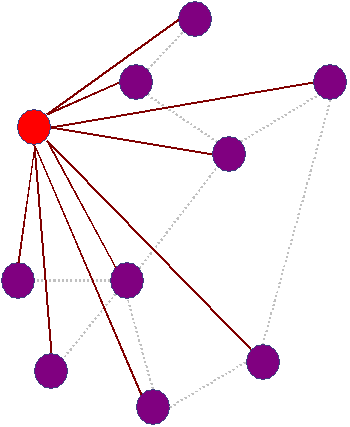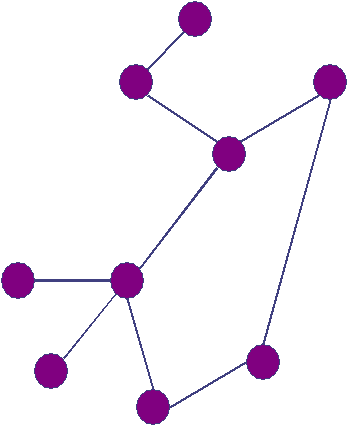
Centralized networks where clients are connected to server are suffering from some remarkable disadvantages. These include bottlenecks, server overloading and server crashes. If the most wanted data is located only in one server and a large number of the clients are looking for the data at the same time the situation can culminate to a real problem and the data won't be available at all.

Peer-to-peer networks have gained publicity mainly because of Napster and Gnutella file sharing softwares. They have presented a different aspect from the vulnerable centralized networks. The structure of a peer-to-peer network is totally decentralized and clients in this kind of a network are equal to each other. Because there is no central servers there won't be any single point of failures or performance bottlenecks and the network is highly fault-tolerant and robust.
There are also some problematic matters in peer-to-peer networks. These include locating and sharing resources without a central index. Also achieving trust between nodes is complicated, because no one knows if a peer-to-peer client lies about the resources it has.
The customer of this project, Cheese Factory , studies peer-to-peer communication and behavior of peer-to-peer networks concentrating on distributed search of resources and their efficient use. In addition Cheese Factory investigates the formation of power-law networks, efficient matching of logical and physical topology and peer-to-peer network resilience under attacks and random failures.
| Cheese Factory has also implemented a Java-based peer-to-peer computing platform called Chedar . Chedar can be used to build a network of workstations where each node provide and consume resources such as CPU, files and displays. In order to test and monitor this Chedar network there was a need for a tool that enables to remotely control and monitor each peer and workstation in a centralized way. At this point the product of the project comes in. |

|
Copyright © 2002 Guardian. All rights reserved.